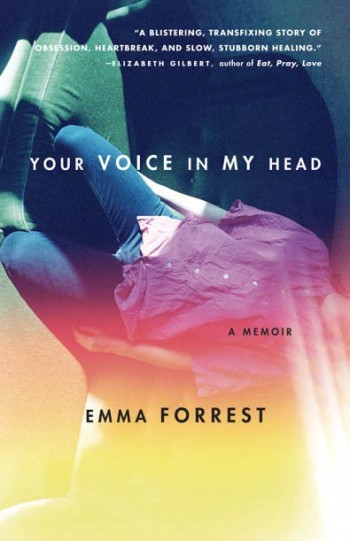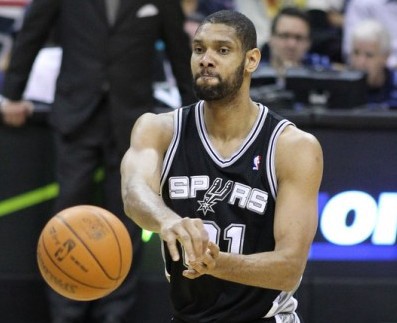The Amazing Things You Can Do With Your Homemade Black Hole
“Having mastered control over space-time, a super-civilization might want to fabricate their own black holes for a variety of tasks: waste disposal, starship propulsion, hyper-computing, maybe even time travel.”
— Discovery reports on the work of Clement Vidal
of the Evolution, Complexity and Cognition group at the Vrije Universiteit Brussel, who posits that advanced civilizations of super-aliens have likely figured out ways to “tap the energy resources of an entire galaxy” and engineer the conditions of the universe to their liking. Of course, there are other uses for a homemade black hole.
1) Eternal flashlight battery
2) Site-finding for giant bop-gun
3) Alignment for rear-attacking boogie catcher
4) Navigation of eternal maze of the mule
5) Vacant booty discovery and colonization
6) Mothership connection
7) Cloning Dr. Funkenstein
8) Diagnosis and treatment of Placebo Syndrome
9) Raising Funkativity levels
10) Trombipulation
11) Funkentelechy
Canadians Are Voting And Stuff Today
It’s election day in Canada! If you wonder what it’s all “aboot” (haha, get it?), here’s a helpful primer.
When Your Shrink Dies: Emma Forrest's Therapy Memoir
by Maud Newton

If you’ve ever been in therapy and liked, trusted and worried about losing your shrink, Emma Forrest has lived your nightmare. Three years ago, her psychiatrist died of lung cancer she didn’t know he had. This was the man who rushed to her side at St. Vincent’s after she downed a bottle of pills, who sang show tunes — “It’s just his neurosis that oughta be curbed / he’s psychologically disturbed!” — with her in sessions, and who tried, with no hint of salacious intent, to confiscate a fashion photo she showed him of herself, bleeding from self-inflicted cuts, in her underwear. With Dr. R’s help, she “fell out of love with madness” (as he put it); just months before his death, she published an essay empathizing with Britney Spears’ descent into mania and praising him for saving her from a similar fate. And then he was gone, leaving behind not just a devastated Forrest but a host of bereft and rudderless clients. Discovering the others’ outpourings in the guest book underneath his New York Times obituary was, she writes, “like growing up and realizing that other people have read The Catcher in the Rye, not just you.”
Forrest’s new memoir, Your Voice in My Head, which traces the long history of her depression and evokes her struggles to stay sane without Dr. R, is so intense and compelling, so dark, hilarious and wistful, and so likely to be picked up, highlighted and worried over by every neurotic I know, I almost feel sorry for New York City’s mental health practitioners, who probably should have had some sort of advance warning that it’s coming. It’s a testament to the author’s empathy that she’s able to incorporate other patients’ eulogies into the book without robbing them of their power or giving off the slightest whiff of gimmickry. When I marvel, in an extended email interview, at how naturally their stories and hers coexist, she says, “I think of all us disparate lost souls who sought solace at East 94th Street as a Robert Altman movie, with intersecting lives and sorrows.”
As a veteran of head shrinkery, and a lifelong master of sickening self-analysis, I’ve read my share of psychotherapy narratives. The doctor’s-eye-view can be illuminating, but clients’ stories, unless there’s some hint of boundary transgression or other weirdness, tend to be dully self-involved and trite, either so insular as to have no relevance to anyone other than the teller, or as universalized and didactic as a religious tract. There are exceptions — I Never Promised You a Rose Garden and Girl, Interrupted have their moments, and I’m sure I’m forgetting some — but the only one I know that rivals Your Voice in My Head for sheer tear-jerking power is Annie G. Rogers’ (strange, uneven, haunting) A Shining Affliction.
***
Have I buried the lede? By the standards of the slicks and the gossip blogs and anyone who likes her mental-health-on-the-edge stories sexy, gossipy and celebrity-studded, yes, I’ve buried the lede: Colin Farrell. Forrest was dating the famous (and infamous) actor when Dr. R died, and was still sick with grief when Farrell broke it off. She doesn’t name him, in the book or in interviews. “It probably seems maddeningly coy,” she tells me, acknowledging that “there are photos of us together all over the net.” But she doesn’t have to confirm, if she doesn’t want to. The timing of Dr. R’s death and of the media reports on the rise and fall of her and Farrell’s relationship leave no doubt, for me at least, about the identity of the boyfriend she calls her “gypsy husband.”
They hook up after Forrest has been living in LA for a while, holding down a screenwriting gig. She calls back to New York for increasingly infrequent, lighthearted phone sessions with Dr. R, and she’s so content with Farrell and with her work that when Dr. R dies it takes several months for the news to reach her. Soon the gossip blogs learn that she and Farrell are dating. Commenters characterize her as a fat, ugly groupie-slut-opportunist. “Maybe we’ll get lucky and she’ll take an overdose of lithium,” says one, with a smiley. Some hardcore haters research Dr. R, whose specialty was cocaine addiction, and the rumor spreads that he’s been treating her for drug abuse. Forrest and Farrell stick it out for a while, but the relationship ends suddenly, some months later. Boarding a plane, Farrell texts “to say he’ll be in my arms in a few hours and our life together will begin in earnest.” Then he shows up, shaking, at her apartment and says, in the parlance of heartbreakers everywhere, baby, “I think I need some space.”
I’ll join Julie Kane in being outraged if Forrest’s book is reviewed as “the Colin Farrell story,” because “his is not the Voice of the title,” and because it’s the story of Forrest’s pain, not his. But I was surprised, having only a vague negative impression of Farrell before reading Your Voice in My Head, at how charming, intelligent, and likeable he seems — before he calls things off and stops returning her texts, anyway.
He encourages her writing. He promises, from a film set on the other side of the globe, to send her the moon. Wrapping up Indian leftovers too quickly, he and her dad label one carton, by turns, “Mystery,” “wrapped in a riddle,” “cloaked in an enigma.” When she learns Dr. R has died, Farrell, off working on a movie somewhere, FedExes her a single Werther’s toffee. His obsession with starting a family, and in particular his insistence on buying a coat for their future daughter — whom he’s already named Pearl — when Forrest isn’t even pregnant and tries to discourage him, is as alarming as it is touching, but it really is both. Relatively few pages of this slim, finely wrought book are directly devoted to their relationship, but in that small space Forrest transforms him from an abstract distasteful celebrity into a guy you wouldn’t mind having a beer with.
I tell her this. “Colin is one of the most beautiful souls on the face of this planet,” she says. “You know, even beneath mental illness or alcoholism or homelessness, people still have their personalities. And even in his long-gone period of public acting out, there’s not a person who worked with him who doesn’t love him, because he is such a gentle, funny, humble eccentric. It took a long time, but my heart now feels full when I think of him. When you fall in love again — which I have — it’s funny the other things that come back in with that open-ness. You have this ghost chorus of the lovers who came before, but they’re benign now, they’re good spirits.”
***

When writing a memoir, Forrest says, “you must point out your own flaws before anyone else does… [A] reviewer gasped that I’m obsessive and self-centered — I did say that about myself in the book.” And it’s true: Your Voice in My Head is relentlessly candid, self-deprecating, wise-cracking, and introspective. “I would flash my thong at the President,” Forrest writes, all sympathy with Monica Lewinsky. “Obviously I would.” In email, she elaborates: “I’d have done exactly, exactly what she did, certainly at that age. The FBI said she had the profile of a stalker, but that’s ridiculous because all spurned 24-year-old girls have the profile of a stalker.”
For anyone with a self-destructive streak, it’s been strange to watch cutting become, among cultural cognoscenti in the aftermath of the Goth era, a big, tired joke, a shorthand for a kind of over-the-top, self-indulgent, depressive fucked-up-ness: “she’s a cutter.” “Or is this only in New York,” I ask her, “where everyone is jaded and unsympathetic?”
“I honestly didn’t know that,” she says. “I did recently read a member of the screenwriting ‘Fempire’ joking that they stick together because otherwise they’d be cutters. And I thought, Oh, okay, I am a cutter, I guess that’s why I’m not invited to the Fempire. I haven’t cut in many years now but I would describe myself as a cutter the way someone who hasn’t had a drink in two decades identifies as an alcoholic. It’s a default position when the going gets rough. Always what you yearn for even if you never do it ever again.”
I’d never heard of the “Fempire.” I look it up, and write back: “Nothing against the women who belong to it, riding from theater to theater in a white limousine together on opening night to gauge first audiences’ reactions, but it sounds awful, like the sort of group that could actually drive me to pull out a razor. Maybe it’s just me. I’ve never been much of a joiner.”
But Forrest is quick to make clear that she’s not at all opposed to women banding together for support. “Kirsten Smith, who wrote Legally Blonde and The House Bunny, has been supporting my writing for years, since she read [Forrest’s first novel] Namedropper,” she says. “I love her as a person and as a writer.”
In our exchanges, Forrest is friendly, but reserved — guarded, even. No doubt her caution is partly the hard-won wisdom of a practiced interviewer — now 33, she entered the world of celebrity journalism half her life ago; one of my personal favorites from her archives is her profile of The Game author Neil Strauss — but she is also genuinely averse to saying anything that might cause anyone anguish. “It’s hard to talk about Dr. R outside the book,” she tells me, “because I know it’s such a roller-coaster of emotions for his widow. It’s easier when I know she has time and space.”
For all the brazenness and candor of Your Voice in My Head, I have the sense that Forrest is slightly uncomfortable commenting on some of the passages I quote back to her. “A lot of the book came as something of a fever dream,” she says. “There would be pages at the end of the day that seemed to end up on my screen by osmosis, things I don’t remember typing.” Which is to say that Emma Forrest, like any writer worth a damn, is her most fascinating, honest, open self in her work, not in interviews.
“You’ve written this deeply revealing book, and now you’re being expected to answer all kinds of questions about it. Is that uncomfortable?” I ask her. “Like, ‘Jeez, I’ve already told you about my suicide attempt, the flower I cut into my leg, all the cakes I threw up, my sex life, and which movie scenes I’ve masturbated to. What more do you people want from me?’” She says, “having worked in newspapers from 15 years old for over a decade instilled this psychological assumption that whatever you write just gets thrown out the day after it’s printed. That isn’t true of a book, obviously, but I’m not worrying about permanence as I write.” Elsewhere she’s admitted, “It’s obviously complicated to talk about the stuff that I’ve written about. But this is the deal you make when you publish.” And she told the Globe & Mail, “One psychologically dangerous terrain for relapses is talking about it, and now I have to talk about it for a year.”
Despite the originality and precision of her work, her ability to conjure a scene in three sentences, and her skill at describing powerful feelings through vivid and surprising metaphor, Forrest doesn’t seem to share more self-consciously literary authors’ interest in holding forth on technique or genre or (that evergreen debate) the value, or lack thereof, of MFA programs. Apart from Your Voice in My Head, Forrest has published three novels: Namedropper, Thin Skin, and Cherries in the Snow. Asked which she finds harder to write, fiction or memoir, she says, “Fiction is harder, for me anyway. I can’t keep track of anything, how old people are or what page I’m on or which country I’m in.”
Is writing fiction less emotional for her, then — more straightforwardly and dispassionately a construction — than autobiography? “It changes. Sometimes constructing a really good cup of tea is a damn emotional experience for me!”
I want to tell her how much I love this aspect of her book — that she infuses everyday tasks, like making tea, and familiar places, like the 6 train, with a palpable melancholia; “I saw the pain and sadness in everything,” she writes in Your Voice in My Head, “and swirled it round my mouth like a fine wine.” But it’s hard to talk coherently about that way of looking at the world, what I think of as a sort of emotional synaesthesia, without sounding crazy, so I keep pressing on genre: “I ask because for me fiction is infinitely more difficult. [I’ve been very publicly finishing up a novel for years now.] Probably because I endlessly pick at and analyze my actual experiences before putting pen to paper, nothing I write about them, no matter how screwed-up they were, is as destabilizing to me as what surfaces when I’m writing fiction, and I’m always curious to know which form is more difficult for any writer who does both.” She’s not especially interested in this line of inquiry. “Where I was, memoir was the only way to go on this particular story,” she says. “Alexandra Pringle, my British editor at Bloomsbury, thinks the previous books I wrote were a dress rehearsal for the memoir.”
Does she agree with Margaret Drabble that depression is useful for writing in that it “strip[s] off ways of getting through life that prevent you from having to think”? (“Happy and buoyant don’t force you into action on the page,” Drabble argues.)
“I didn’t find depression useful in any way whatsoever,” Forrest says. “I found being able to figure out the alphabet of depression, to name it, to find the right words to describe it to others, that I found useful. I just re-watched Fatih Akin’s Head-On, and he just names so much, so many things that have been terrible and abstract, he puts the right words to. It’s a film I find so painful and so comforting because of that.”
That same descriptive power is what sets Your Voice in My Head apart from so many other memoirs. A few sections made me flinch, literally flinch, I identified with them so fully. Kenny Shopsin, owner of the late, lamented, demented West Village diner, compares Forrest to Marilyn Monroe and then, when she thanks him, says, “You’re all velvet and Velcro. Men want you because you’re sexy and broken and when it gets too tough they can say ‘Hey! This toy is broken!’ and toss you aside without feeling bad.” This makes her “sadder than anything I’ve ever heard.”
“Mania,” she writes, “flows like a river approaching a waterfall. Depression is a stagnant lake.” “The thought of suicide is masculine energy, with manicured nails, like a mafioso.” After she gets out of the hospital, “There’s an element of being so frightened of myself that I’m gratified to find I frighten the public at large.” What was it like, I wonder, for Forrest to dig far enough into herself to expose so much after losing her lover and her psychiatrist with a few months of each other. “Methodical, sort of beautiful, like a ritual. It hurts to lift that one foot you have in the spirit world and come back to earth, to keep both feet in reality, to become earthed. So writing those passages actually eased that discomfort, that transition for me.”
***
When Your Voice in My Head appeared in England, Julie Myerson — a novelist who notoriously wrote a memoir about disowning her teenage son because of his “addiction to cannabis” — reviewed it, portraying Forrest as a self-obsessed star-fucker. “What are we to make,” Myerson asks, “of her constant need to have men — and especially famous men — desire her, and then hurry off to catalogue it all in a tone that’s a little too close to crowing for comfort?”
It’s true that Farrell isn’t the only famous man Forrest has been involved with — not, apparently, by a long shot. An (unnamed) writer and former crack addict Dr. R convinces her to break things off with is rumored to be Aaron Sorkin, and she’s admitted to having, “for whatever reason, several movie star boyfriends.” Given that Forrest wrote a novel called Namedropper, I’m going to go out on a limb and guess that she’s heard variations on Myerson’s accusation before. But she’s been interviewing actors, musicians, artists, and other celebrities since she was a teenager, and she’s a successful novelist and a screenwriter; obviously she’s going to know famous people. And Your Voice in My Head depicts plenty of relationships with guys who are just guys — if, often, deeply messed-up ones. Reading Forrest’s book it’s obvious that she’s naturally gregarious, a true extrovert, as likely to strike up a conversation with a diner owner or a group of teenage girls in team uniforms as she is to talk to celebrities. Let me put it this way: when someone asks to pray with me, I run the other way, but to this day Forrest is grateful to the pretty young woman in the “omnipresent Juicy Couture tracksuit” who came up when she was sobbing on the sidewalk and “prayed until the bus came.”
“Oh yes,” she tells me, “I have no boundaries whatsoever, I will let anyone in and I’ll steamroll my way into your life too. One of the best writers I know is Jon Ronson and one of the best actresses is Rachel Weisz — I don’t think they know each other — but both of them, any cab I’ve ever shared, I noticed they always ask the driver his life story. I think it’s a lovely quality that correlates directly to their work.”
Like her friends, Forrest is curious about other people’s lives. She remembers their words and their anecdotes, is interested in their complexities. And anyway, aren’t we all self-obsessed? A few years before his death, David Foster Wallace spoke of a “natural, basic” and “socially repulsive” self-centeredness that causes each of us to believe that we are “the realest, most vivid and important person in existence.” What’s brilliant about Forrest’s book is that she’s upfront — and funny and insightful and lyrical — about her neuroses, her compulsions, her need for attention, but she’s also willing to consider everyone else’s assessments and everyone else’s pain. “In my reading at least,” I say, “you’re writing not to take revenge on those who’ve wronged you but to lay yourself bare, figure yourself out.”
“No, no revenge,” she agrees, “none needed. The people I really have something against, I just don’t write about. The grey areas, good people doing bad things, bad people doing good things, that’s what I like reading about, listening to, or watching. Have you seen Fishtank? That’s a film that’s feels like a novel I wish I’d written.” I can see that, so much so that I’d believe her if she said she had written it.
“Reading Your Voice in My Head,” I tell her, “made me want to learn needlepoint and make a wall hanging of the note you wrote yourself after the sobbing-on-the-sidewalk incident:
Fuck it, then. I choose this.
It chooses me. I choose it back.”
She likes this idea: “To go with the people who have the last lines of Ulysses tattoo’d on their wrists. ‘Yes I said, Yes I will yes.’ Kate Bush incorporates it into her song ‘The Sensual World’ which I listened to six times today on the bus.”
Dr. R’s is the Voice of the memoir — the voice in her head. So did writing the book end up being her way of continuing the conversation with him? “That was really the point,” she says. “I was so scared of losing his voice. I had to internalize it, lock it in and make it a part of me, before it began to dissipate. Also, he thought I was a good person, and that meant the world to me, it was sort of a revelation. That was something I was afraid I’d lose track of, too. That I might go back to being that girl who’d look in the mirror with vomit on her face and burst blood vessels in her eyes and say ‘Ha! I caught you — the real monstrous you.’”
Maud Newton is a writer and critic best known for her blog, where she has written about books since 2002.
Photo by Seamus McGarvey.
Steve Reich, "WTC 9/11"
“Nearly 40 years after the hidebound boos that greeted Reich’s Carnegie debut, in 1973, with “Four Organs,” the critical consensus has long been settled. The composer — one of America’s original sonic minimalists — is capital-I Important. That his music will survive him is beyond question. Also not up for debate is whether Reich stands as an indispensable part of New York’s musical firmament, as he is a touchstone for post-rockers, avant-turntablists and myriad stylists currently plowing the hybrid, compound-noun genre fields still yet to be blog-hyped (or even named).”
— Awl pal Seth Colter Walls reviews Steve Reich’s “WTC 9/11,” a “15-minute piece for three string quartets and pre-recorded voices.”
Jay Electronica, "Dimethyltryptamine"
Rapper Jay Electronica made this great song called “Dimethyltryptamine” over an old J Dilla beat in 2007. He made a video for it, too, with gruesome news-footage images relating to the lyrics’ twisty tale of Illuminati-style conspiracy theory. Two years later, in 2009, he went to Kathmandu, Nepal and filmed another video, this one featuring impressive cigarette-smoking technique, and pedestrians lighting up the night-time streets with laser-beam vision. For some reason, the second video just came out this weekend. (I’m sure it has something to do with special-forces operation that killed Osama Bin Laden.) Anyway, it’s very druggy and cool-looking.
People Still Perplexed About "The Sopranos" Ending
“Most TV shows — American and British — seem to end terribly these days. There are no elegant conclusions, just a feeling of loss and confusion…. The epic American drama The Wire came close, hinting at what its large cast of characters would do with their lives, but The Sopranos (the greatest of all US TV series) ended too mystifyingly. Its creator, David Chase, has maintained that all the clues are there in the final sequences and lengthy essays have been written about what actually happens to the Soprano family in that diner. Are they in a witness protection scheme? Is Tony rubbed out at his table? But really, it was an untidy letdown. In the end, you just need to know that Tony Soprano has been bumped off. You need to see it.”
— No. No you don’t. Can we please stop saying this? “The Sopranos” ended perfectly, and any suggestion to the contrary is just an admission that we want life — and death, because HE DIED — to be wrapped up in a tidy bow. Grow up, people.
Another Round, Another Upset

Picking huge upsets in a playoff series is a relatively cowardly enterprise that’s made to seem courageous by those calling them. “Going out on a limb” isn’t really any such thing, as two days after predictions are made, no one remembers them. Except if they were right. Then everyone knows about this stunning act of bravery.
Most of the time, I gravitate toward the moderate upsets, all of which I believe in my heart will happen. And my picks either pay off handsomely (Hawks over the Magic — told ya!) or do not (TrailBlazers over the Mavericks — oops).
I’ve spent a few hours looking at everyone’s prognostications, including the 412 people ESPN.com asked, and no one could’ve imagined that the Memphis Grizzlies, led by the twice cast-off Zach Randolph, a lesser Gasol (Marc), two of the NBA’s grittier players, Shane Battier and Tony Allen, could beat the San Antonio Spurs, the team with the NBA’s second-best regular-season record. And, to do so forcefully enough that it might actually send the current Spurs team spiraling toward dissolution. The Spurs looked old and tired. Tim Duncan seemed resigned to being bullied, and I was disappointed that the referees (who must not have gotten the pro forma “protect the superstars” memo) seemed inclined to let Grizzlies defenders pepper his back with forearm shivers. Even Tony Parker’s French smirk seemed forced.
I don’t think the Spurs made the mistake of looking beyond the Grizzlies, as some are contending; it seemed more like they got smacked in the face and shrank back, collectively figuring that it was not their year. It was like a reckoning, shockingly. With this next round, where bad blood only seems to be simmering in one match-up, the results should be more predictable: The Lakers rose to the occasion against the Hornets and should keep that going against the Mavs. Unlike the Spurs, the Lakers initially played a low-energy brand of hoops, but rallied under the peerless determination of Kobe Bryant, who is still such a dangerous offensive threat, even with a balky ankle. The Lakers, perhaps anticipating the same fate as the Spurs, added grit and hunger to their team last off-season with ugly winners (literally) Steve Blake and Matt Barnes to compensate for Derek Fisher, who now seems to be relying on muscle memory in big games. Chris Paul was amazing, and almost pulled it off, but one guy can only do so much.
The Mavericks resoundingly beat the Blazers, and so I must give them credit for that. Jason Kidd was rejuvenated, Dirk Nowitzki didn’t get rattled and the Blazers couldn’t put four strong quarters together. They were explosive, but the Mavs were able to withstand their runs. Unfortunately, Dallas will be coming up against a veteran team in the Lakers, whose ability to win big games and big series is unrivaled. I’m thinking six games, but I can see the Lakers putting them to bed in five.
I’m happy for Zach Randolph, I guess, but, as a Knicks fan, I don’t ever remember seeing the “blue collar player and blue collar worker,” as Randolph described himself after Friday night’s clinching game. He had an amazing series, a career series really, but I think his run ends against Oklahoma City, as the Thunder are everything the Spurs are not — young, athletic and hungry. They also have a stout interior defense with Serge Ibaka, Nazr Mohammed and Kendrick Perkins. Randolph won’t have as much freedom in the lane as he did against the Spurs. And he may actually have to leave his feet once or twice.
I don’t think that Memphis has an answer, defensively, for Kevin Durant, and Westbrook is reasserting himself at the right time. I’m sticking with my prediction that the Thunder will win it all. This series will be five games. The Grizzlies should be proud of themselves. And wait until next year.
Once upon a time, the Celtics were built to beat the Heat. Like, really beat the Heat. They had two experienced scorers (Paul Pierce, Ray Allen) that could compete with the Heat’s two scorers (LeBron James and Dwyane Wade), they had a range-y big man (Kevin Garnett) that could hold his own against the Heat’s range-y big man (Chris Bosh). And they had a true center in Kendrick Perkins — someone to provide interior defense, grab rebounds and maybe even score a little. Someone young with energy.
And someone the team traded away.
GM Danny Ainge can cite all kinds of reasons for his shocking decision — free agent Perkins was probably leaving after the season anyway — but no one considers the Celtics the “team of the future.” Other than the Mavs or Spurs, they are built to win today, right now, this year. Their window is closing. My fear is that, with the trade, the team has shut it on themselves. But the Celtics may still have enough to get past the Heat, who I saw struggle more against the high-energy Sixers than the series’ tally indicates. They may actually have the worst bench in the playoffs. I see this as a six- or seven-game series and I see the Celtics prevailing. But if the Heat win — and Game One was a good start, although the referee that ejected Paul Pierce should be benched for the series — the fault is all Ainge’s.
Okay, so, I’m going out on a limb here and picking an upset: The Atlanta Hawks will beat the Chicago Bulls. Since floating this idea to a few friends, their reactions were the same: Wanna bet? No, literally, they wanted to see if I would stand behind my choice. I would, but I hate taking people’s money.
I misjudged the Bulls last round, thinking they were going to steamroll the woefully less-talented Pacers. But what happened was that the Pacers played ferociously, the Bulls seemed content to sacrifice intensity, and Indiana came within a few bounces from pulling off a Grizzlies-style upset. Not sure what Carlos Boozer thinks he is accomplishing, but he needs to play defense, rebound and provide a physical presence. If a scrub opponent like Jeff Foster delivers flagrant fouls to your team’s stars (as he did to both Luol Deng and Derrick Rose), you need to respond in kind. Tattoos and growling don’t equal toughness, especially with those fussy, groomed eyebrows.
Derrick Rose is extraordinary, and bailed his team out against the Pacers. He again will be the best player in this series. And I like Deng and Kyle Korver, too. But the Atlanta Hawks are a more balanced team and have more experience on this stage. Al Horford, Joe Johnson and Josh Smith will get the job done (and that’s even if Kirk Hinrich is severely limited). I see a team that is peaking at the exact right time and the Hawks will win the series in six games.
Courageous of me, I know.
Tony Gervino is a New York City-based editor and writer obsessed with honing his bio to make him sound quirky. He can also be found here.
Photo by Keith Allison, from Flickr.
A Gallery of New York in Spring!

Have you been outside? Sure you have — gotta go buy Wheat Thins and cigarettes sometime. But have you really been outside? These in particular are the short weeks that genius NYC Parks Commissioner Adrian Benepe has set up to make New York City a ridiculous and tawdry explosion of plant reproductive techniques. Central Park — where that delicious little bit of forest above is — is like a tree orgy; it’s sort of embarrassing! And elsewhere around the city, it’s a testament to the City’s impressive investment to intelligent planting and plant care. Sure, the argument could be made that it just gives the homeless somewhere nicer to sleep, or it makes a nice backdrop for brown people to be searched illegally, but don’t you also believe in a beautiful city? And for the class-conscious record, if you haven’t been all the way uptown yet, those tulips on the avenues certainly go up to at least 168th Street.



Also, Columbus Circle has been transformed into… Ghent? It’s very attractive, if very foreign-feeling! It completely distracts from the nightmare that is the Time Warner Center. Bloomberg: always he takes with one hand and gives with the other.


Bin Laden Death: Further Ramifications
“A spokeswoman for St. James’s Palace said there was no link between the U.S. attack on Osama bin Laden and the decision by the Duke and Duchess of Cambridge to postpone their honeymoon.”
Welcome To May: Expect Zombies
It’s May! It’s May! How are you feeling? Merry? This is supposed to be such a merry month. If you were outside this past weekend, you could see why. Spring has sprung, the weather is warming. All those April showers seem to have done their job. Flowers are everywhere — on the ground, in the trees. It was raining pink cherry blossom petals in Washington Square Park over the weekend. One fell right on to the banh mi sandwich I was eating; I couldn’t even complain.
Birds are everywhere, too. And the bees. Reproductive glands abuzz. I suppose it has something to do with why Vanessa Redgrave is so lusty and itching for fun, be it wholesome or un-? Nature being such a whore and all.
The Kentucky Derby happens this month, too. This coming Saturday, May 7th. And it’s well documented how decadent and depraved that event is. As Hunter S. Thompson learned from a man named Jimbo he met in the Louisville airport around this time back in 1970,
“The little lady won’t come anymore,” he said. “She grits her teeth and turns me loose for this one. And when I say ‘loose’ I do mean loose! I toss ten-dollar bills around like they were goin’ out of style! Horses, whiskey, women… shit, there’s women in this town that’ll do anything for money.”
(I love it that the Derby organizers run that essay on the race’s official website.)
Considering the time of year, then, if I was going to bet on a horse in this year’s Derby, I’d put my money one called Pants On Fire. (This is assuming the name is meant in more of a Kings of Leon way, and doesn’t have anything to do with the horse’s trustworthiness.) But I don’t think I’ll be betting. I don’t know a thing about horse racing. Though I do enjoy going to the track on a nice sunny day. I used to go a lot when I was in high school, having grown up near enough to Monmouth Park to have heard the trumpets from my house. There was a local jockey named Julie Krone who was really good. I used to bet on all the races, too. But I stunk at it. (I relied on the same name-centric methodology back then.) I think I won one race in all the times I went. I was standing next to my friend Ted’s dad, though, when he hit the trifecta at the Haskell Invitational one year. He won $10,000, I think it was. I’d never heard a grown-up scream like that, and he bought drinks for everyone within earshot. It was very exciting. Anyway, you know who I would not put money on this year? The horse called Stay Thirsty. I mean, I like those Dos Equis commercials as much as the next guy, but it’s lame to name your horse after a beer commercial. Especially one as campy and tongue-in-cheek as those Dos Equis ones. And, now that I’m thinking about it, if you bet on a horse called Stay Thirsty, it doesn’t seem like your chances are so good to be drinking champagne in the winner’s circle, does it? But like I said, I suck at gambling. Stay Thirsty will probably win just because I think it won’t.
Speaking of blaring trumpets, depravity, and predictions, Baptist radio preacher Harold Camping says that according to a mathematical formula he’s worked out for interpreting revelation from the Bible, the world will come to an end on the 21st of this month. Around dinner time.
“All the stealing, and the lying, and the wickedness and the sexual perversion that is going on in society is telling us something,” he said, to Britain’s The Independent a little more than a month ago. “So too is the gay pride movement. It was sent by God as a sign of the end.”
So that’s not very merry. Unless you’re among the two percent of the earth’s population Camping believes will successfully heed the trumpet’s call, receive the Rapture and go to heaven. He said the world was ending back in September 1994, too. But this time he’s really sure.
I think that’s my very favorite David Bowie song. (Ask me tomorrow and it might be “Quicksand,” though.)
Camping cites the recent earthquakes in Haiti, New Zealand and Japan as harbingers of our fate. From what I could gather, though, it’s not entirely clear how exactly he thinks the world will come to its final impending doom. One possibility, of course, is zombie apocalypse. May has been officially named Zombie Awareness Month by the Zombie Research Society, so that seems as likely as any other scenario.
According to the Zombie Research Society’s website,
“Supporters of Zombie Awareness Month wear a gray ribbon to signify the undead shadows that lurk behind our modern light of day. From May 1 through May 31, Zombie Research Society Members and friends take this small step to acknowledge the coming danger.”
Apparently both George Romero’s original 1968 Night of the Living Dead and Zack Snyder’s 2004 Dawn of the Dead take place in the month of May, so that’s why it’s Zombie Awareness Month.
“What’s your name? Who’s your daddy?” Man, even zombies can’t keep it in their pants this time of year. Everybody’s itching for fun. Wholesome or undead.
